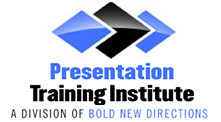Glossophobia, or the fear of public speaking, is the most common phobia among Americans. In fact, it’s the one thing Americans fear more than death. Just the thought of public speaking is enough to induce anxiety in many people. This intense fear comes from our fear of being judges, scrutinized, and criticized. Despite their fears, many people have to face their public speaking anxiety as part of their jobs. Their job might require them to lead training classes, speak during meetings, or present in front of a group. Here are a few scientifically research-backed strategies that will help you gain the confidence to become an engaging public speaker.
Practice Your Presentation
You’ve heard it over and over but when it comes to delivering a dynamic presentation the key is practice. Take the opportunity to practice your speech or presentation in front of family, friends, or coworkers. According to neuroscience studies, exposure is the best and most successful way to deal with phobias. Even a singles session of exposure therapy can eliminate one’s fear of a specific situation. Practicing your speech might not be as extensive as a therapy session, but it will definitely help calm your nerves.
Think Positive
Reciting positive affirmations might feel a little silly, but according to research, psychologists have found that people who practice positive self-affirmations are better equipped to deal with pressure and are more likely to succeed. The next time you are preparing for a presentation, try telling yourself a few things like: “I am going to nail this presentation.†“I am a strong and confident speaker.â€Â “I am going to be successful today.â€
Get Plenty of Rest
While you might find yourself tossing and turning the night before a presentation, staying up too late can actually increase your stress levels. Sleep allows our bodies to maintain a healthier immune system, regulate hormones, and stay energetic while we’re awake. It will also help you to ease your mind from racing thoughts that might induce stress and anxiety.
Eat Right and Exercise
Research has shown that food is processed differently at different times of the day. Therefore, you should avoid eating heavy meals right around bedtime which would force your body to struggle to process those calories. Likewise, you should try and exercise the morning or afternoon before your presentation, as this will help you to fall asleep faster.
Be Mindful of Your Posture
When presenting in front of a group of people you need to be mindful of more than just the words you are speaking. The way you stand, sit, or move around the room can have an impact on your ability to present and the way people will perceive you. According to psychological studies, standing with string posture even for a few minutes can stimulate higher levels of testosterone (the hormone linked to dominance) and lower levels of cortisol (the hormone linked to stress).
Make Eye Contact
Most people would agree that if you were engaging in a conversation with someone who made little or no eye contact with you, you might get an uncomfortable or unsettling feeling about that person. Eye contact allows you to connect with your audience and can make you appear more credible and more sincere. Studies have shown that periods of uninterrupted eye contact can increase likability. To make the most of your next presentation, be sure and look up from your notes and connect with people in the audience.
